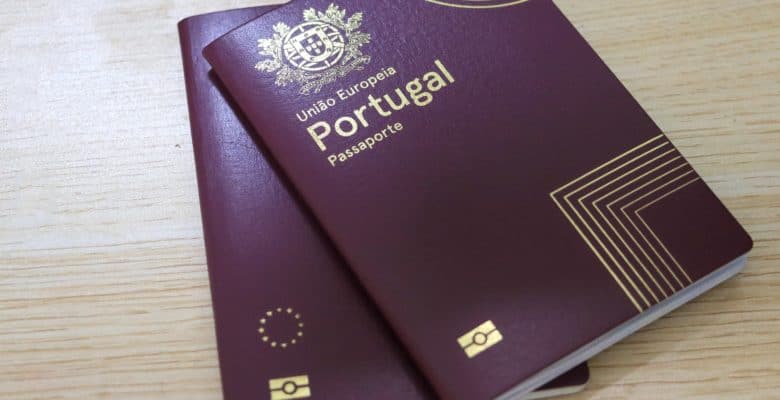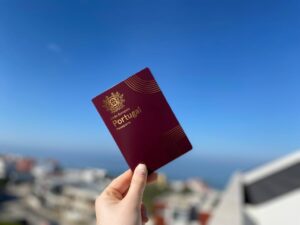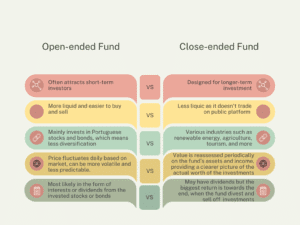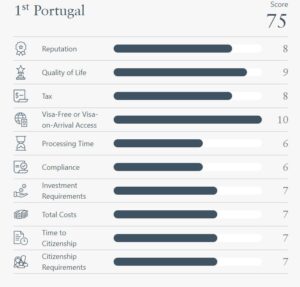How to Get Second Passport: Top Tips and Considerations
It is the best of times, it is the worst of times.
We live in uncertainty today. Can you be certain that whatever comfort zone you have will remain the same always? A social movement, political issues, economic issues, natural disaster…
A back up plan is essential in today’s world, and a second passport gives you just that. An option in life. A choice on how and where you choose to live, your standard of living, how much taxes you pay and who will inherit your estates.
If you are thinking about broadening your global footprint by applying for a second passport, you’re not alone. The idea of getting a second passport has become increasingly appealing for many reasons—from enhancing travel freedom to securing a safety net for the future. Whether it’s about exploring new horizons or having a backup plan for uncertain times, understanding the pathways to a second citizenship can be a game-changer.
Understanding the Basics of Obtaining a Second Passport
Embarking on the journey to get a second passport opens up a world of opportunities and security, but understanding the basics is crucial to navigating this complex process successfully. Here’s a closer look at some fundamental aspects you should consider. Let’s consider and choose the right country for your second passport.
1. Exploring Dual Citizenship Regulations

Dual citizenship, which means holding citizenship in more than one country, is recognized and regulated differently around the globe. It grants you legal rights and obligations in both countries. Some countries do not recognize dual citizenship, and you might have to renounce one nationality to maintain another.
Before pursuing dual citizenship, it’s advisable to research the specific regulations of the country you are considering. This includes understanding any potential legal issues like military service requirements, tax obligations, and etc.
2. Permanent Residency vs. Citizenship
Understanding the distinction between permanent residency and citizenship is vital when considering a second passport. Permanent residency permits you to live indefinitely in a country, giving you rights like working and accessing public services. However, it does not equal citizenship. Permanent residents often cannot vote and may face travel restrictions. For instance, a Portugal passport allows you to live, work, and study in any of the 27 EU countries, while a Portuguese permanent residency only allows you to do so in Portugal. In some cases, their status can be revoked, such as if they stay out of the country for an extended period.
In contrast, citizenship grants the full range of rights, including the right to vote and apply for a passport. Citizenship is usually obtained through birth, descent, marriage, or naturalization. The process can vary greatly between countries, often requiring a lengthy period of residency, language proficiency, and knowledge of the country’s culture and laws. For those looking for a faster route, some countries offer citizenship by investment programs. These programs enable individuals to quickly get a second passport and citizenship, typically through substantial economic contributions such as fund investments or donations.
3. Matter of Residency : Move Right Away or Just as a Plan B ?
Most countries have a significant minimum number of days that you need to reside in the country as one of the immigration requirements. Meaning that you might need to forgo your current job. But what if you are not yet ready for the move immediately? What if you still want to work for a few more years but don’t want to delay getting your second passport because no one knows what will happen tomorrow? In the same way, what if the second passport is really just a backup plan? Nevertheless, can you still immigrate and get that second passport without being physically there?
Fortunately, there are countries that allow you to immigrate, get their temporary residency and eventually their citizenship or passport with very short stay requirements. Most of these schemes are investment related immigration, meaning you need to invest a certain amount in the country to get the immigration visa. One example is Portugal, which requires only a stay of 14 days every 2 years, and you can apply for citizenship after 5 years. Check out here about Portugal’s Golden Visa program and what it offers in terms of your Plan B.
Navigating the path to a second passport requires careful consideration of dual citizenship regulations, the differences between permanent residency and citizenship, and your future plans. By understanding these basics, you can better prepare for the requirements and commitments involved in getting a second passport, ensuring a smoother and more informed journey.
4. Investment-Related Immigration Options
When choosing the right country for your second passport, it’s important to carefully consider both the selection criteria and the different investment-related immigration options available. Investment-related immigration options vary significantly from one country to another, each with its own set of benefits and requirements. Here are some prominent programs:
- European Golden Visa Programs: Many European countries offer Golden Visa programs that provide residency and potential pathways to citizenship through various investments like real estate, fund investments, or business ventures. Portugal, Hungary, and Greece are popular choices offering benefits such as visa-free travel within the Schengen Zone and access to high-quality education systems.
It’s wise to consult with professionals who can offer detailed insights and personalized guidance. This ensures that your investment not only secures a second passport but also matches your overall financial and lifestyle goals. Check it now !
5. Navigating the Legal and Tax Implications

Navigating the legal and tax implications of holding dual citizenship requires a careful understanding of various tax regulations and inheritance laws. Beyond standard income and capital gains taxes, some countries tax worldwide income, meaning all income earned both domestically and internationally. This can lead to double taxation if both countries claim the right to tax the same income.
Some countries have tax treaties that can eliminate double taxation. These treaties allow dual citizens/ residents to potentially owe taxes only in one country, simplifying tax obligations. This is a significant benefit and one of the top reasons why people seek a second passport.
Portugal is a prime example, offering a remarkable tax incentive through the Non-Habitual Residence (NHR 2.0) scheme. This scheme provides a tax break for the initial 10 years, where salary / work income are taxed at a flat 20% tax rate and tax exemption on foreign income based on double tax treaty.
For more information, check out how to get your tax ID (NIF), and declare your tax residency.
6. Inheritance Law and Tax Considerations
Most people often neglect this because they think it’s too far away. However, proper estate planning with a clear understanding of the legal framework in both your home country and the country where you hold a second passport is beneficial to your heirs.
- Asset Distribution:
Inheritance laws determine how your assets will be distributed after your death, and these laws vary significantly from country to country. This variation can greatly impact how your estate is allocated. Some countries have forced heirship laws that mandate a portion of your estate be distributed to specific relatives, regardless of your personal wishes.
In countries like the U.S., the UK, and Canada, which follow English common law, there is substantial flexibility in deciding who inherits your property. However, in many European countries and other nations with civil law systems, inheritance laws can be much more rigid and prescriptive.
- Tax Implications:
Many countries impose inheritance or estate taxes, which can significantly reduce the amount your heirs receive. Understanding these taxes allows for better financial planning and tax efficiency. Did you know that many countries tax up to 40% of your estate? In contrast, Portugal is one of the few countries that has a 0% inheritance tax for direct descendants and spouse. If you want to leave a legacy for your children, it’s crucial to look into inheritance laws and taxes.
Always consider consulting with qualified legal and tax professionals to get advice tailored to your specific circumstances and the countries involved. Check it now !
7. Healthcare System
When evaluating a second passport, healthcare and education are critical factors to consider. Do you get free healthcare? What level of service quality can you expect from public healthcare? Additionally, is there options for private healthcare and what is the cost of private healthcare? Keep in mind that non-residents may not receive immediate healthcare benefits. It might be necessary to purchase expat health insurance initially until you establish residency and gain access to the local healthcare system.
Obtaining second citizenship in Portugal may ease your concerns, as the country provides free healthcare to its residents. Check out the details on Portugal’s healthcare system. Portugal also boasts a top of the range private healthcare system, allowing you the best care, with significantly lower cost than the US. Residents also have options to purchase private healthcare insurance with less than €100 a month.
8. Education System
If you have children, even more questions are likely on your mind. Are educational opportunities free, and does the country have a strong education system? What are the university fees, and how do they rank? Is it easy to transition between your home country’s educational system and the new one, and vice versa?
With a growing expat community in Portugal, the international school scene has flourished in recent years, offering more options than ever before. However, it’s advisable to plan ahead. Due to high demand, early enrollment—preferably at least six months in advance—is recommended.
9. Safety and Quality of Life
When thinking about getting a second passport, it’s important to consider lifestyle aspects that will affect your decision. Safety is a paramount concern when choosing a second home. Countries like Portugal are highlighted for their high safety rankings in reports from the Global Safety Index. For instance, Portugal is ranked as the 7th safest country in the world. The peace of mind that comes from residing in a safe environment cannot be overstated, especially for those from regions experiencing political or economic instability, social unrest, terrorist threats, conflicts, or discriminatory practices.
10. Culture, Weather, and Community
Loving a country during a vacation is different from loving it while living there. Even if you are getting a second passport as a backup, it’s wise to ensure that you could happily live there; otherwise, your backup plan doesn’t serve its purpose.
Cultural compatibility can significantly impact your integration and overall happiness in a new country. Engaging with local traditions, understanding societal norms, and connecting with the community are essential for a fulfilling expat experience. Additionally, the climate of your potential second passport country should align with your preferences, whether you’re looking for sun-soaked beaches or snow-covered mountains.
Click here to learn more about why Portugal may be your ideal choice for living.
Conclusion
Embarking on the journey to acquire a second passport is a multifaceted decision that involves not only legal and financial aspects but also deeply personal considerations regarding lifestyle, safety, and cultural integration. Ultimately, you need to determine the best country for a second passport application and understand the process to do so.
If you are planning to relocate to Portugal, or any other country, check out job opportunities for expats abroad on platforms like Jooble.


























